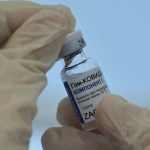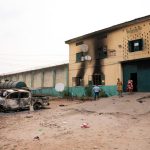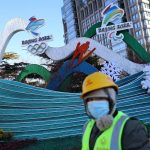China has shut down a city of 9.3 million people over 17 COVID-19 infections, while a proposed second phase of a World Health Organization (WHO) investigation into the origins of the virus has been rebuffed.
Residents of Nanjing will not be allowed to leave without producing a negative COVID test within 48 hours before departure after a cluster of coronavirus cases was detected among cleaners at the local airport.
The eastern Chinese city is preparing to test all residents as soon as possible as it goes into a “soft” lockdown.
The measures were imposed after the 17 workers tested positive at the city airport in a routine round of testing, prompting more than 500 flights to be cancelled.
On Tuesday morning, 157 close contacts for isolation had been identified by authorities.
Under the lockdown, people living in higher-risk communities in the city are required to stay at home, while one neighbourhood is being closed off completely.
The fresh panic over new cases comes as China rejects a WHO plan for the second phase of an investigation into COVID’s origins, which would include looking into laboratories.
A WHO-led team spent four weeks in and around the central city of Wuhan, where the virus first emerged in December 2019, with Chinese researchers in January to investigate where and how the pandemic began.
The teams said in a joint report in March that the virus had probably been transmitted from bats to humans through another animal, but that hasn’t stopped more speculation.
Now, a senior Chinese health official says China cannot accept the WHO’s plan for the further study.
Zeng Yixin, vice minister of the National Health Commission, said he was “taken aback” by fresh calls to investigate further into the pandemic’s origins – specifically the theory that the virus might have leaked from a Chinese lab.
Follow the Daily podcast on Apple Podcasts, Google Podcasts, Spotify, Spreaker
He said the lab at the centre of these theories – the Wuhan Institute of Virology – has no virus that can directly infect humans and dismissed the link as a rumour that runs counter to common sense and science.
He noted that a WHO-coordinated team of international experts who visited the lab earlier this year concluded that a lab leak was highly unlikely.
“It is impossible for us to accept such an origin-tracing plan,” he said at a news conference.
Last week, the WHO’s director-general, Tedros Adhanom Ghebreyesus, said there had been a “premature push” to rule out a potential link between the pandemic and a leak from a Chinese government lab in Wuhan.
He said he hoped for better cooperation and access to data from China, admitting that investigations were being hampered by the lack of raw data on the first days of the spread of coronavirus in the country.






















